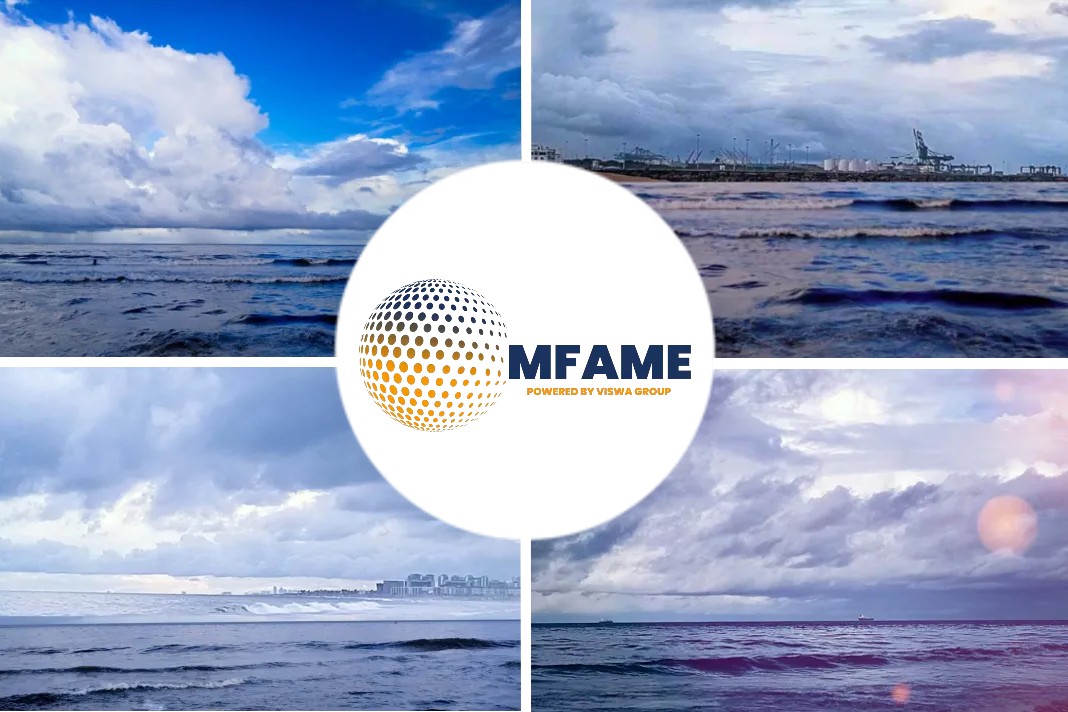
Nomura says new shipbuilding orders peaked; Korean firms refute, highlights a Korean Economic Daily news source.
Value-added ships
Korean shipbuilders, armed with technology for value-added ships, expect their profitability to remain intact.
Nomura Securities recently said global new shipbuilding orders likely peaked in 2022, slashing its stock recommendation rating on industry leader HD Hyundai Heśśśavy Industries Co. to neutral from buy.
South Korean shipbuilders, however, refute the investment bank’s view, saying it is “only half true.”
In a research note, Nomura forecast this year’s new orders for global shipbuilders will decline 22.6% from last year. It added that a “rebound in tanker orders will be insufficient to offset a decrease in orders for LNG carriers and container newbuilds.”
HD Hyundai Heavy, the world’s largest shipbuilder, likely saw a peak in newbuilding orders in 2022, Nomura said.
According to market research firm Clarksons Research, newbuild orders in the first seven months of this year reached 23.12 million compensated gross tonnage (CGT), down 25% from 30.67 million CGT in the year-earlier period.
Growing seaborne transportation
With growing seaborne transportation in the post-pandemic era, shipbuilders around the world have anticipated an order rally.
Korea’s Big Three shipbuilders – HD Korea Shipbuilding & Offshore Engineering Co. (HD KSOE), Hanwha Ocean Co. and Samsung Heavy Industries Co. – said a steady stream of orders for high-value-added ships is still possible.
Eco-friendly ships
“We agree with the view that there will be a smaller scale of new ship orders this year and next, given the high number of new ship orders last year,” said an official at a Korean shipbuilder.
“But in the tanker market, where demand for new orders has been low, Korean shipbuilders stand at an advantageous point given their technology as demand for ships with eco-friendly engines is expected to rise.”
Demand for eco-friendly tankers has been low as they have better fuel efficiency than container ships.
Currently, only half of newbuilding orders for tankers are eco-friendly ships, including those powered by LNG or methanol.
With major economies around the world attempting to cut emissions to meet net-zero targets, however, the shipping sector has been looking for ways to cut the environmental footprint of its operations.
Methanol had been a less-favored fuel
Methanol had been a less-favored fuel for ships because of higher production costs. With increased natural gas production globally, however, demand for methanol-powered ships is increasing in line with tighter environmental regulations by the International Maritime Organization (IMO).
The IMO, a UN maritime safety agency, recently said it now requires its member states to cut carbon emissions from ships by 30% of their 2008 levels by 2030 and raise the target to 80% by 2040. All ships must aim to achieve zero emissions by 2050.
“Chinese shipbuilders have a price-competitive edge in the tanker market. But in terms of technology, Korea is ahead of China,” said an executive at another Korean builder.
Profitability to remain intact
HD Hyundai Heavy, the shipbuilding affiliate of HD Hyundai Co., received an order worth $7.27 billion in the first half, similar to $7.29 billion in the year-earlier period.
“We have more than three-and-a-half-years’ worth of order backlog at our dockyard,” said a third Korean shipbuilder. “Even if new orders decrease, we expect our profitability to remain strong on the back of newbuilds for value-added ships.”
Last month, Samsung Heavy won a 3.96 trillion won ($3.13 billion) deal to build 16 methanol-powered container ships for Taiwan’s Evergreen Marine Corp., the world’s fourth-largest shipping firm.
The deal’s value marks the single largest order of any Korean shipbuilder on record.
Did you subscribe to our daily newsletter?
It’s Free! Click here to Subscribe!
Source: Kedglobal















